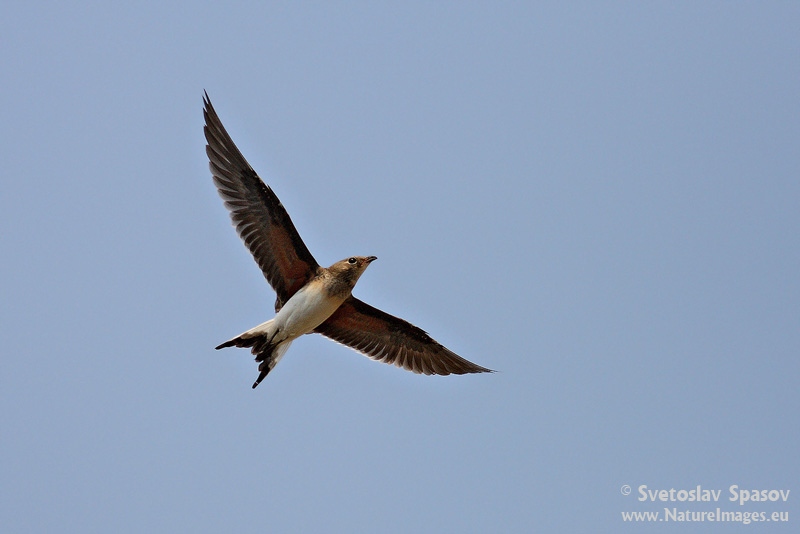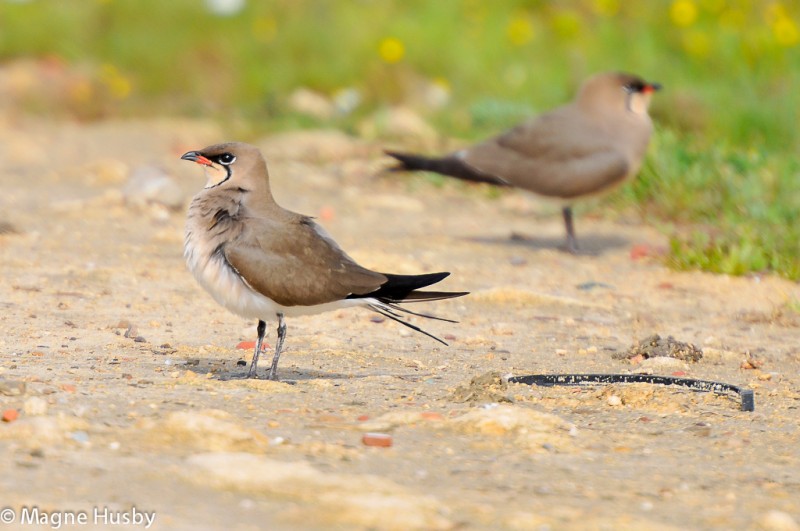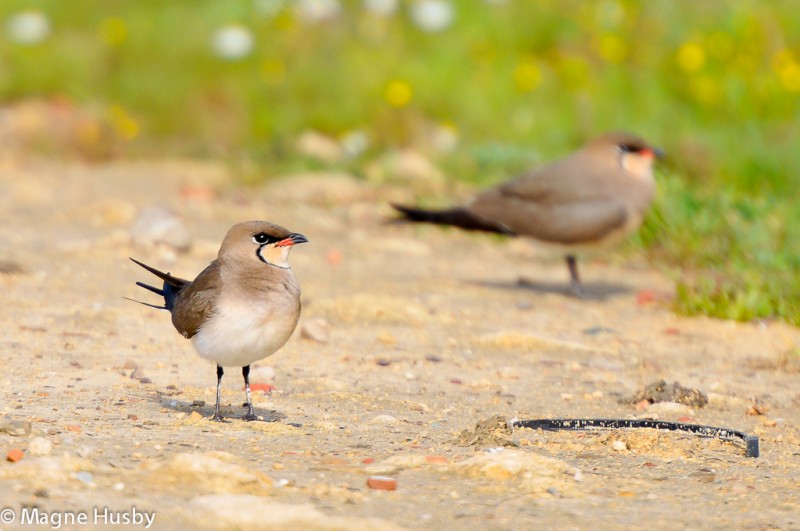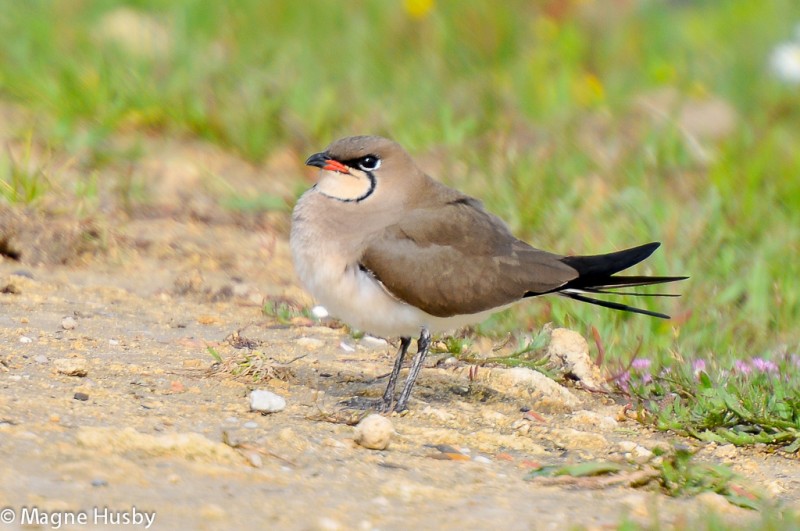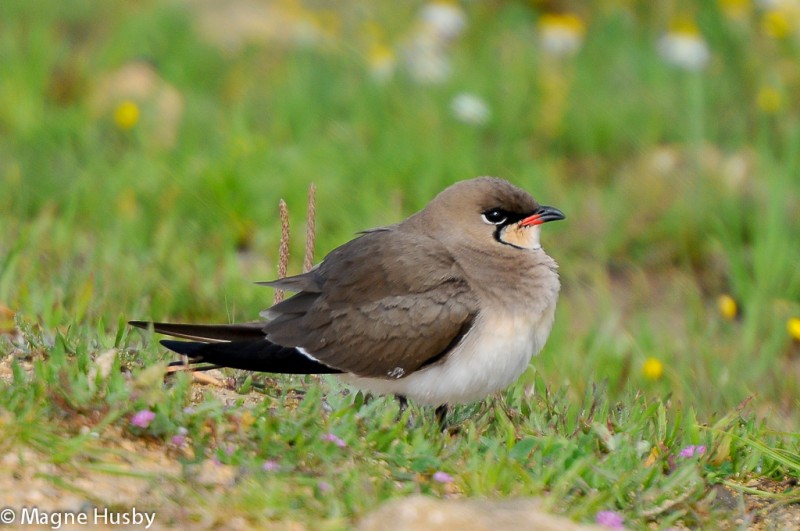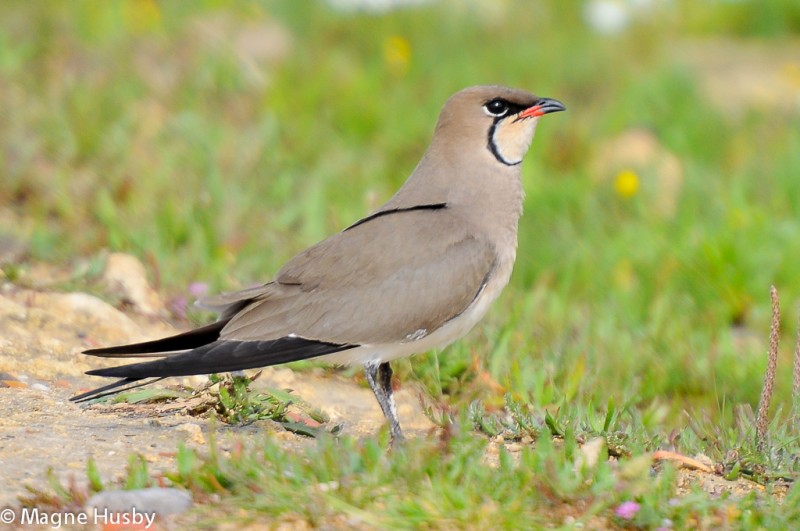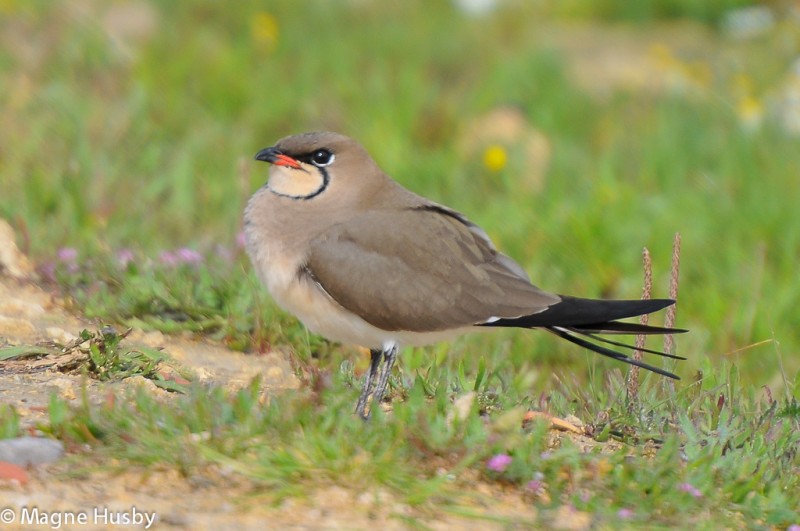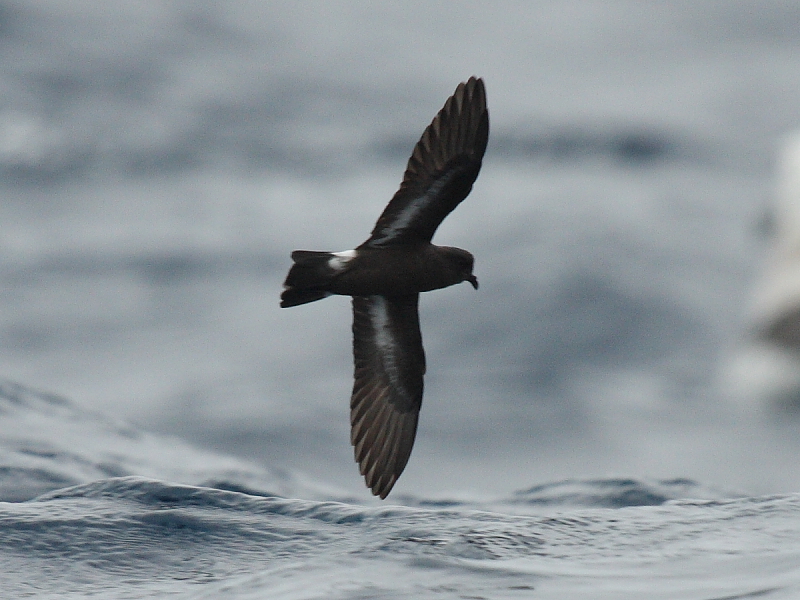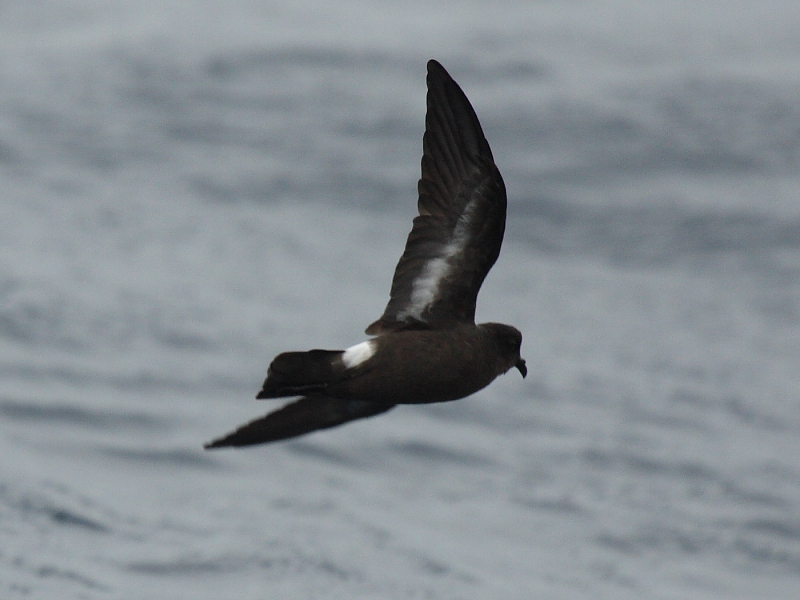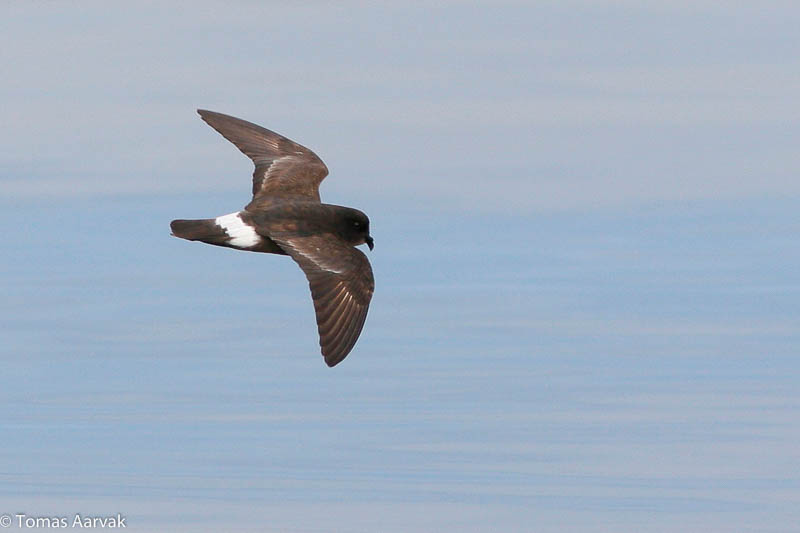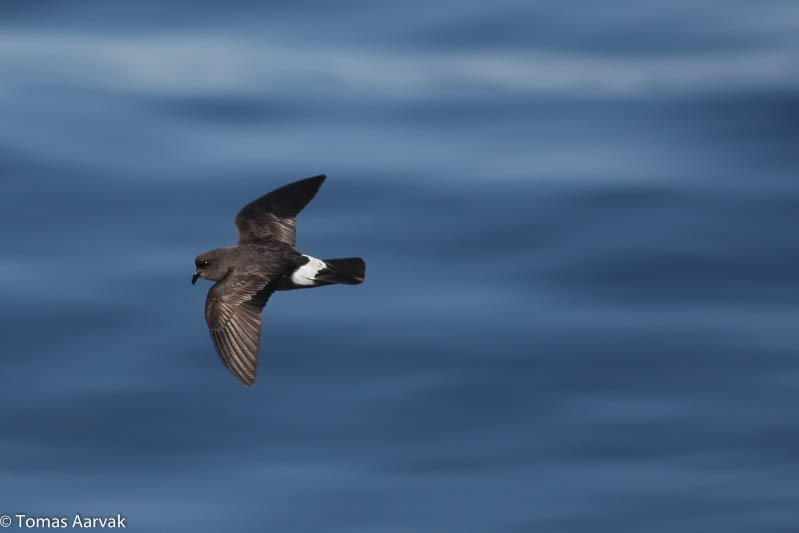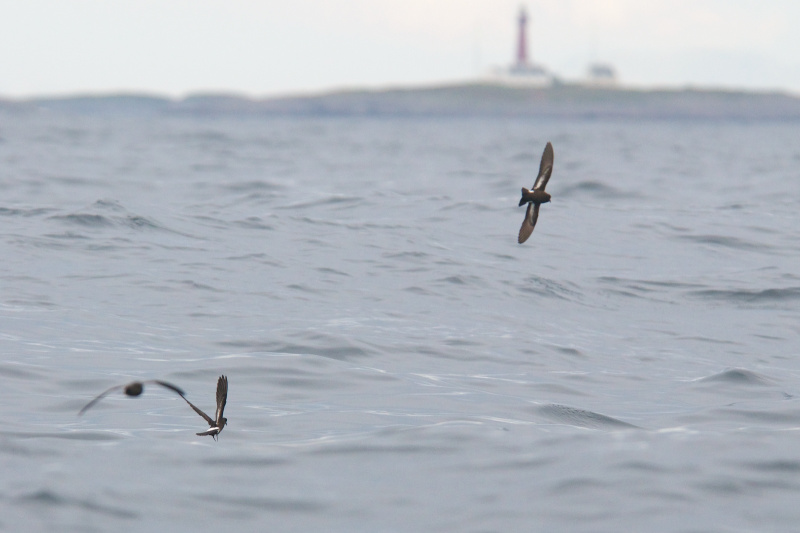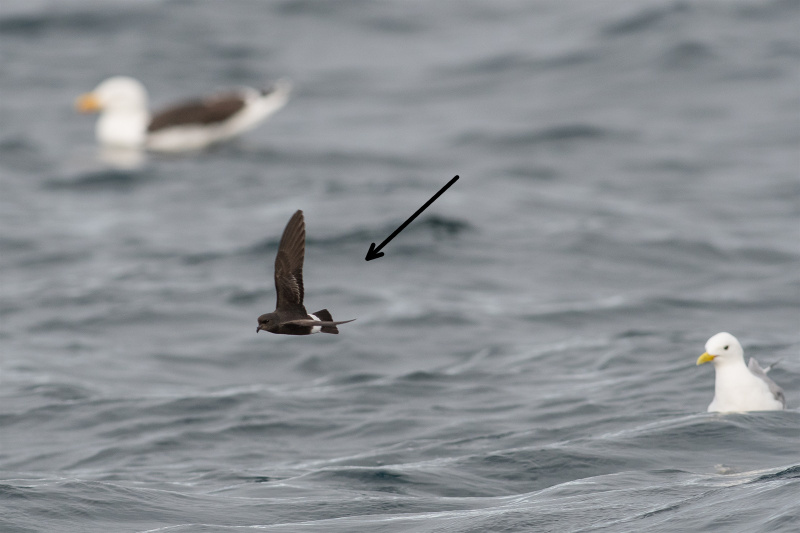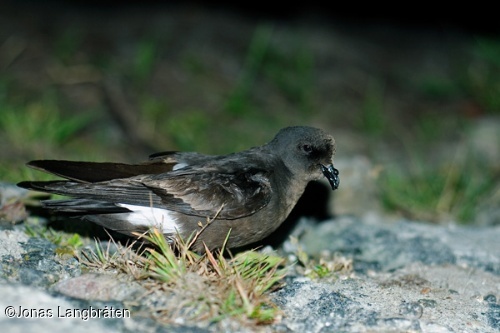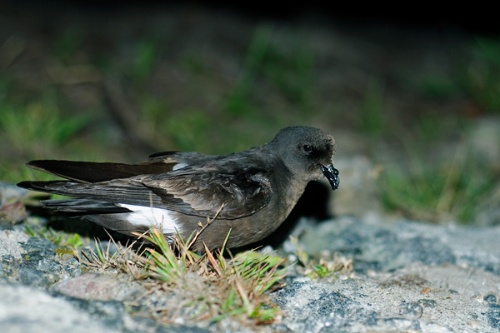Collared Pratincole (Glareola pratincola)
Storm Petrel (Hydrobates pelagicus)
Slightly smaller than Golden Plover with much slender appearance. Only likely to be confused with other pratincoles, but diagnostic field marks often difficult to see. Differs from Black-winged Pratincole by rufous underwing and narrow, white trailing edge to upperwing (both characters requires good light). Tail streamers longer than wing-tips and base of bill with more red (in breeding plumage). Sexes alike. Lacks black necklace in winter plumage. Immature birds are similar to winter-plumaged adults, but with additional scaly upperparts. Often confusing at first glance when in flight, due to tern-like, acrobatic flight not resembling other waders.
Sound:Quite vocal. Nasal tern-like, far-carrying calls often betrays its presence before it is seen. Short and sharp "kiev" or "kip" frequently used. Most diagnostic call is a two-part, rolling "kivik-kirrrrrrr", with the latter part slightly descending. Easily confused with Black-winged Pratincole, but the hard parts are more resonant, and less clicking and staccato, while the more melodic components are less mewing. Also quite similar to Little Tern in timbre, but the two-part structure in the diagnostic call is different.
Various calls:
Distribution:
Xeno-canto: map
Ecology:Birdlife ecology
Links:
Observation.org Latest observations
Image search Flickr NB! May give other species
CCRarely seen, small petrel. Compact with shorter wings and tail, and blacker plumage than Leach's Storm-Petrel. Squared, unforked tail. White patch on upper tail coverts that reaches down on each side, with more square-cut edges than in Leach's. Also lacks the grey upper wing-band of latter, but shows white stripe on underside of wing. Flight-pattern bat-like with quick fluttering wing-beats and less powerful, and only short, gliding sequences. Sometimes patters with feet on the surface or rests on water. Visits breeding ground at night.
Sound:Heard at breeding ground. Dry, cyclic, rattling and cooing, interrupted by deeper nasal moaning or a higher pitched "kee-ee-kee", with emphasis on second syllable.
Song:
Distribution:
Wikipedia: map (se also Xeno-canto below)
Ecology:Birdlife ecology
Links:
Observation.org Latest observations
Image search Flickr NB! May give other species
CC
 English
English Albanian
Albanian
 Armenian
Armenian
 Bulgarian
Bulgarian
 Catalan
Catalan
 Croatian
Croatian
 Czech
Czech
 Danish
Danish
 Dutch
Dutch
 Finnish
Finnish
 French
French
 Georgian
Georgian
 German
German
 Greek
Greek
 Hungarian
Hungarian
 Italian
Italian
 Latvian
Latvian
 Lithuanian
Lithuanian
 Macedonian
Macedonian
 Norwegian
Norwegian
 Polish
Polish
 Portuguese
Portuguese
 Romanian
Romanian
 Russian
Russian
 Sami : Lule sami
Sami : Lule sami
 Sami : North sami
Sami : North sami
 Sami : South sami
Sami : South sami
 Scientific names
Scientific names
 Serbian
Serbian
 Spanish
Spanish
 Swedish
Swedish
 Ukrainian
Ukrainian

